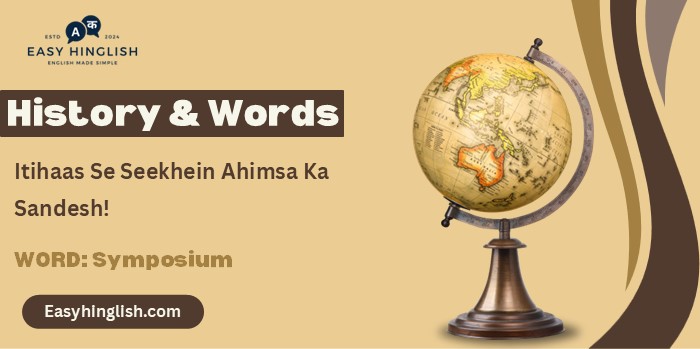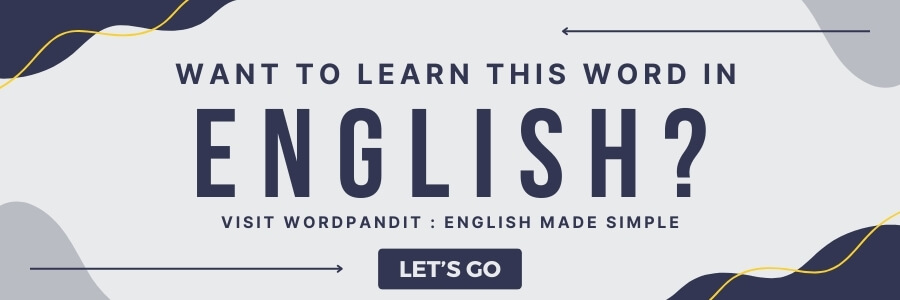History & Words: ‘Symposium’ (January 18)
Welcome to ‘History & Words.’ 🌟 Main Prashant hoon, Wordpandit aur Learning Inc. Network ka sansthapak. Yeh series meri bhasha seekhne ki lagan aur itihas ke prati ruchi ka sangam hai. Har kadi ek shabd aur uss se judi ek tithi par roshni daalti hai, jisse aapka shabdkosh badhta hai aur aap itihas ko gehraai se samajh paate hain. Aaiye, iss safar mein shabdon ke madhyam se samay mein pichhe chalein.
🔍 Word of the Day / Aaj ka Shabd: Symposium
Uchcharan: /sɪmˈpoʊziəm/ (sim-PO-zee-uhm)
🌍 Parichay (Introduction)
18 January 1778 ko Captain James Cook ne Hawaii ke islands ka pehla European contact establish kiya. Is moment ne sirf geography nahi, balki scientific aur cultural understanding mein bhi naye daur ki shuruaat ki. Cook ke discoveries ne ek aise silsile ko janm diya jo aaj bhi chalu hai – symposiums, yaani structured gatherings jahan experts apne insights aur research share karte hain.
Aaj “symposium” ka matlab hota hai – ek formal meeting jahan scholars ya professionals kisi specific topic par discussion karte hain. Lekin iska safar ancient Greek wine parties se shuru hua tha – jahan drink ke saath-saath gyaan bhi share hota tha.
🌱 Shabd ka Utpatti (Etymology)
“Symposium” Greek shabd “sympósion” se aaya hai – jisme “syn” ka matlab “saath” aur “posis” ka matlab “peena” hota hai. Pehle yeh word wine-based gatherings ke liye use hota tha – lekin in parties ka core part tha conversation aur intellectual discourse.
📖 Mahatvapurn Shabdavali (Key Vocabulary)
- 🔑 Colloquium: Thoda chhota aur informal academic dialogue-based meeting
- 🔑 Proceedings: Symposium ka documented record
- 🔑 Discourse: Formal discussion ya thought-sharing
- 🔑 Peer Review: Scholarly content ka same field ke logon dwara evaluation
🏛️ Itihasik Sandarbh (Historical Context)
Ancient Greece mein symposium ek elite cultural event hota tha – jahan poetry, music aur philosophy discuss ki jaati thi. Plato ka famous work “Symposium” isi format par based tha.
Renaissance ke time mein ye idea revive hua, jab scholars ne classical dialogues ke format mein meetings organize karni shuru ki. Scientific Revolution aur Enlightenment ke dauraan symposiums research exchange ka major platform ban gaye.
Captain Cook ke Pacific voyages ne jab naye cultures aur species ke baare mein data collect kiya, to Royal Society of London jese institutions ne is data ko discuss karne ke liye symposiums host kiye – jahan astronomy, cartography, botany aur anthropology pe serious discussion hua.
⏳ Samayrekha (Timeline)
- 385 BCE: Plato ka Symposium likha gaya
- 1660: Royal Society ka formation
- 18 Jan 1778: Cook’s discovery of Hawaii
- 1779: Royal Society mein Cook’s findings pe symposium
- 1851: First International Scientific Congress
- 1901: Nobel Symposia ka shubh-aarambh
🌟 Is Din ka Mahatva (The Day’s Significance)
18 January 1778 ka din ek exploration milestone tha – lekin uske baad jo symposiums organize hue, unhone humari duniya ki understanding ko deeply impact kiya.
Cook ke sath gaye experts – naturalists, ethnographers, cartographers – unke observations ko scientific symposiums mein present karte rahe. Yeh formal meetings structured hoti thi – with presentations, discussions aur peer evaluation. Aaj ke modern academic conferences ka base isi time pe develop hua.
💬 Prasiddh Ukti (Quote)
“The advancement of natural knowledge depends on the collaboration of many minds, and no better method has been devised for such collaboration than the scientific symposium.”
— Sir Joseph Banks, Royal Society President
🔮 Aaj Ka Matlab aur Chintan (Modern Usage and Reflection)
Aaj symposiums sirf universities mein nahi, corporate world, NGOs aur international diplomacy mein bhi hote hain. Digital age mein virtual symposiums ne unka scope aur expand kar diya hai.
Har field – AI, climate change, health, literature – apne-apne symposiums organize karte hain jahan expert discussion aur interdisciplinary learning hoti hai. Is format ka sabse bada asset hai – depth aur diversity dono ka balance.
🏛️ Virast (Legacy)
Cook ke discoveries aur unke baad ke symposiums ne knowledge-sharing ka ek template banaya – jisme har observation ko structured tarike se analyze aur publish kiya gaya.
Aaj bhi jab hum conference proceedings, peer review aur scholarly debates ki baat karte hain, to hum indirectly 18th-century scientific symposiums ka hi evolved version dekh rahe hote hain.
🔍 Tulnatmak Vishleshan (Comparative Analysis)
Pehle ke symposiums elite aur localized hote the. Aaj ke symposiums global aur democratic ho gaye hain – thanks to technology. Lekin structure, peer discussion aur discourse ka essence ab bhi wahi hai.
💡 Kya Aapko Pata Hai? (Did You Know?)
🎓 Antim Vichar (Conclusion)
Symposium ka safar Greek wine parties se le kar AI aur Climate ke global panels tak gaya hai – lekin uska core same hai: humanity ke beech structured dialogue ka bridge banna.
18 January sirf ek exploration ka din nahi, shared learning aur collaborative thinking ka bhi symbol hai.
📚 Aage Padhne Ke Liye (Further Reading)
- 📘 The Symposium in Context – Kathleen M. Lynch
- 📗 Scientific Meetings: A Guide for Young Researchers – David H. Foster
- 📙 Captain James Cook: A Biography – Richard Hough








